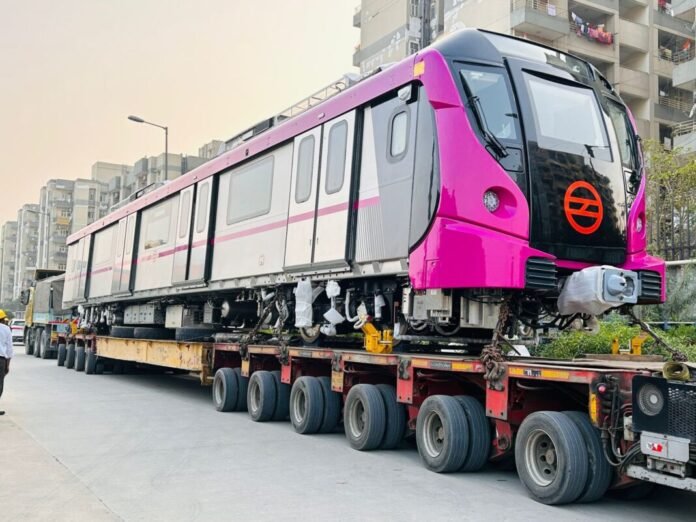Delhi (Metro Rail News): On 29 April 2025, the Supreme Court permitted the Delhi Metro Rail Corporation (DMRC) to proceed with construction activities for Phase IV of the Delhi Metro, following DMRC’s assurance to “strictly abide” by the conditions laid down by the Central Empowered Committee (CEC), which was appointed by the Court.
As part of Phase IV of the Delhi Metro project, the proposed corridors from Inderlok to Indraprastha and from Lajpat Nagar to Saket G Block will traverse areas which have been identified to have morphological features similar to the Ridge. The Ridge, a rocky extension of the Aravalli range, holds environmental importance and remains under protection as per court directives.
According to a report by the Central Empowered Committee (CEC), the construction will impact approximately 28,685 square metres of protected land, including areas near Jhandewalan and Pushpa Bhawan.
As per the Supreme Court-appointed Central Empowered Committee (CEC), the Delhi Metro Rail Corporation (DMRC) must adhere to the following conditions to proceed with construction in the ecologically sensitive ridge area:
- Financial Contribution: DMRC must deposit 5% of the project cost into the Ridge Management Board fund.
- Compensatory Plantation: DMRC will plant 1,280 indigenous trees on non-forest land, bear the cost of compensation, and select species under the guidance of the Forest Department of GNCTD.
- Mark Trees Clearly: DMRC must mark all trees to be preserved with colour bands in the presence of Forest Department officials and ensure their protection.
- Follow Supervised Tree Work: DMRC must engage a specialised agency to carry out translocation, felling, and pruning of trees under Forest Department supervision.
- Seek Tree Permissions: DMRC must obtain permission to fell 30 trees and transplant 92 trees for the Inderlok–Indraprastha Corridor, and to prune 6 trees for the Lajpat Nagar–Saket G Block Corridor.
- Complete Interpretation Centre: DMRC may take additional time to complete the Ridge Interpretation Centre as required.
- Ensure Accountability: The Ministry of Environment, Forest and Climate Change (MOEFCC) must initiate legal action against the concerned DMRC official (CP Singh) for any non-compliance.
- Submit Compliance Reports: DMRC must submit quarterly compliance reports to the CEC.
- Follow Court Mandates: DMRC must comply with all other conditions mandated by the Supreme Court.
- Monitor and Execute Transparently: DMRC must ensure transparency and oversight by the Forest Department throughout the implementation process.
On Tuesday, Solicitor General Tushar Mehta, representing DMRC, informed the Supreme Court bench comprising Justices B.R. Gavai and A.G. Masih that the DMRC would adhere to the conditions laid out by the CEC. Taking note of the submission, the bench stated in its order: “Solicitor General Tushar Mehta says DMRC would strictly abide by the above conditions. In that view of the matter, the application (by DMRC) is allowed. However, it is directed that the DMRC shall scrupulously comply with the conditions as imposed by the CEC.”
Visit InnoMetro 5th Edition: India’s Leading Expo for the Rail Transportation Industry and Experience the Latest Technologies & Innovations in Rail Safety, Infra, Signalling, and AI.
Date: 21-22 May 2025
Venue: Bharat Mandapam, Hall No. 4, New Delhi
Get Your Free Visitor Pass: https://innometro.com/visitor-registration/






Since, metro is our life line in NCR. It is very important to abide by supreme court orders, in order to avoid any delays in the project. Hope, metro official do the needful as per supreme court.